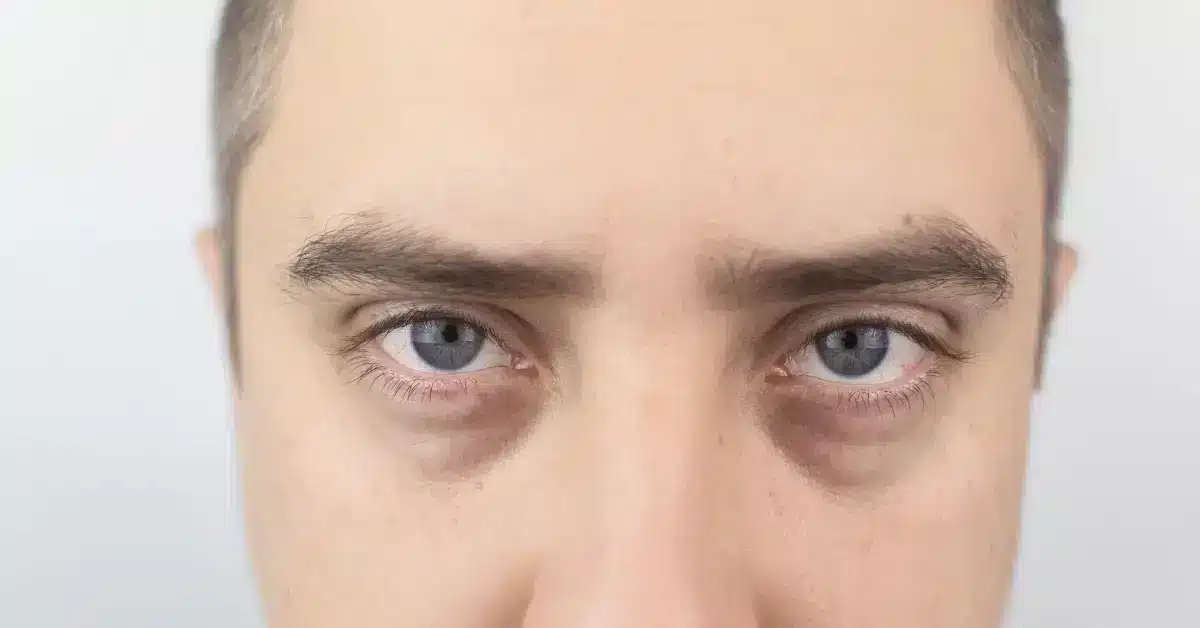How to get rid of Puffy Eyes?: A Complete Guide
Puffy eyes are a common eye condition medically known as Periorbital Edema.
Hormonal disorders, stress, eye allergies, or dehydration can cause them.
Persistent puffy eyes are not painful but can have an impact on self-esteem.
The treatment in each case depends on the cause.
Here, the article discusses how to get rid of puffy eyes quickly.
Medicinal treatment
Persistent puffiness does not go away easily and requires medical help.
Your doctor might prescribe the following eye medications.
Antihistamines
Antihistamines are medicines primarily used to treat puffy eyes due to allergies.
Histamines such as oral tablets or eyedrops can be prescribed according to the severity of the allergic reaction.
Antihistamines block Histamine compounds in the body and prevent puffiness and inflammation.
Your doctors might prescribe Alerid (Cetirizine) or Fexova (Fexofenadine) as oral tablets for treating puffy eye allergies.
Retinol
Retinol works for skin proliferation and promotes collagen production.
It leads to a reduction in inflammation and decreases puffiness under the eyes.
Retinol helps in muscle tightening and promotes the skin renewal process.
Doctors advise using the cream once or twice a week at the start and may gradually increase the frequency.
You may be prescribed Tretin Cream or Tri-Luma cream for treating puffy eyes.
The above products contain Retinol as an active ingredient.
You must always consult your doctor before using it for puffy eyes.
Antibiotics

Allergic reactions that cause puffy eyes can also result from bacterial infections.
In such cases, doctors might prescribe Antibiotics to get rid of puffy eyes.
Antibiotics act to kill the infection-causing bacteria.
It restricts the production of a protein that bacteria need to survive.
Hence, killing the bacteria reduces the infection and treats puffed-up eyes.
Your doctor might prescribe Azithral Eye Drops 0.1%, Milflox 0.5%, or Norflox Eye Drop 0.3% as effective antibiotics.
Non-invasive treatment
Mild puffy eyes can be treated with eye drops and eye creams.
In some cases of persistent puffy eyes, following non-invasive eye treatments may be advised by doctors.
Fillers
In the filler, material like Hyaluronic acid is placed where the under-eye area and cheek meet to create a smooth transition.
Doctors usually recommend less viscous Hyaluronic acid fillers such as Restylane and Juvederm Ultra.
The fillers show results in 3-6 months and are mostly safe for the body as the filler acid occurs in the body.
Chemical peeling
Chemical Peeling works by removing the superficial top layers.
A chemical solution dissolves old skin cells to reveal tighter, brighter skin.
Depending on your skin type and sun exposure, results can last a few years.
Laser Resurfacing
In the treatment, laser or heating devices are used to resurface the skin.
The treatment also promotes collagen production underneath the skin.
Hence, it alleviates puffiness under the eyes.
Puffy eyes surgery
Lower eyelid lift surgery, also known as Blepharoplasty, is prescribed by doctors for severe cases of puffy eyes.
In the surgery, the surgeon cuts into the creases of the eyelids.
They trim sagging skin and muscle and remove excess fat.
As a result, they tighten and create a smooth appearance on the skin.
In most cases, this puffy eye treatment lasts a lifetime.
Home remedies for puffy eyes
You can get rid of puffy eyes through simple home remedies.
Puffy eyes can usually clear up with home remedies within a few days.
Some of the home remedies include:
Increase water intake
Dehydration can cause puffiness in the eyes. Staying hydrated might aid in the reduction of puffed-up eyes.
You may also increase fluid consumption by including buttermilk, coconut water, and lemonade in your diet.
Restrict intake of sodium
High sodium intake can restrict fluid retention in the body resulting in puffy eyes.
Restrict the amount of sodium in your diet to treat the inflammation under the eyes.
Cold compress

A cold compress can help to increase fluid drainage and decrease swelling under the eyes.
Caffeine
Caffeine causes the blood vessels to constrict, lowering blood flow and minimizing swelling.
It also enhances circulation and has a moderate exfoliating effect.
Caffeine has diuretic properties that reduce moisture beneath the eyes.
Covering puffy eyes
For emergencies, you can cover puffy eyes with makeup.
The following tips can help you cover puffy eyes temporarily,
- Use concealer to mask the puffiness.
- You can use a color corrector to blend in the concealer and add masking up the puffiness.
- Brown matte eyeshadow can help contour eyelids to prevent the appearance of puffy eyes.
Conclusion
Puffy eyes can quickly disappear within a few weeks of treatment with anti-allergic medicines, eye creams, or home remedies.
In severe cases, you can treat the inflammation only with treatments like fillers or surgery.
Your doctor will decide on the proper treatment according to your condition.
Hence, contacting your doctor should be your first step to getting rid of puffy eyes soon.
Frequently Asked Questions
How to fix puffy eyes?
You can treat puffy eyes with under-eye cream that contains Retinol. It causes vasoconstriction to reduce fluid retention and decrease puffiness under the eyes. Other treatments include anti-allergic medication, chemical peeling, under-eye fillers, or surgery.
How to make your eyes less puffy?
You can make your eyes less puffy with simple home remedies like a cold compress, increasing fluid intake, and taking a low-sodium diet. Retinol under eye creams, and antibiotics like Azithral eyedrops, can also decrease puffiness of the eyes.
Do Antihistamines treat puffy eyes?
Yes, you can treat puffy eyes caused due to allergic reactions with Antihistamines. They block the histamine compounds and prevent inflammation under the eye.
WowRx uses only high-quality sources while writing our articles. Please read our content information policy to know more about how we keep our content reliable and trustworthy.






